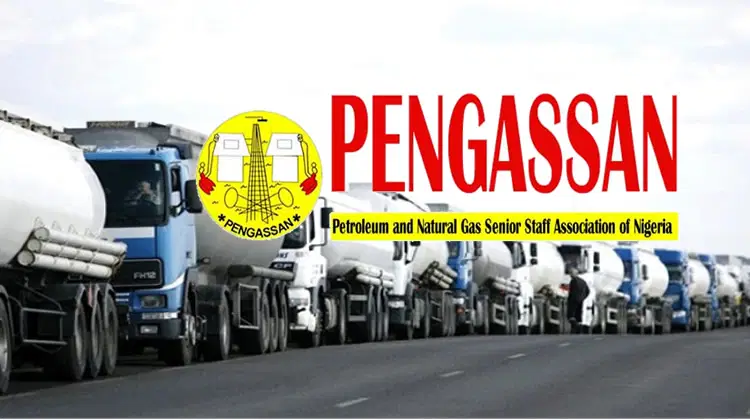The Petroleum and Natural Gas Senior Staff Association of Nigeria (PENGASSAN) has instructed its members to immediately suspend gas and crude oil supplies to the Dangote Petroleum Refinery, escalating a bitter standoff over the alleged dismissal of over 800 unionized workers.

In a directive from its National Secretariat dated September 26, General Secretary Lumumba Okugbawa accused the refinery’s management of retaliating against employees for joining the union, labeling the action as a violation of workers’ constitutional right to freedom of association under Section 40 of the 1999 Constitution and the Nigerian Oil and Gas Industry Content Development Act of 2010. The memo targeted branches in companies like TotalEnergies, Chevron, Seplat, Shell Nigeria Gas, Oando, Renaissance, and the Nigerian Gas Infrastructure Company (NGIC), ordering them to cut off all gas supplies, shut crude oil valves, and halt loading operations for vessels bound for the facility.

PENGASSAN’s Dangote Refinery Branch had earlier petitioned the union’s Lagos Zonal Council, signed by Branch Chairman Abdulfatai Muhammed and Secretary Eseoghene Choice, detailing grievances including forced transfers of union members, denial of personal protective equipment (PPE), poor welfare packages, wage discrimination favoring expatriates, and hazardous working conditions without hazard allowances or health insurance. The union claimed Nigerian engineers earn around N385,000 monthly compared to over $5,000 for their foreign counterparts, with expatriates dominating top roles.

The union’s National Executive Council has further directed a nationwide strike starting Sunday, September 28, with a full shutdown from Monday, September 29, until the sacked workers are reinstated, alongside 24-hour prayer sessions calling for government intervention. PENGASSAN warned that unresolved issues could destabilize the oil and gas sector and threaten national energy security, invoking its slogan: “Injury to one is injury to all.”

Dangote Refinery has vehemently denied mass sackings or anti-labor practices, asserting that over 3,000 Nigerians remain employed there and that recent changes were part of an internal reorganization to address sabotage risks and boost efficiency. The company described the union’s supply cutoff as “criminal and lawless,” arguing it lacks legal basis and could trigger fuel scarcity, price hikes, and massive revenue losses for the government, given the refinery’s role as a strategic national asset. Management emphasized that expatriates were hired only for technical expertise and knowledge transfer, with Nigerians forming the workforce majority.

The dispute risks broader disruptions, as Dangote recently resumed naira-based petrol sales after a brief dollar-only suspension, amid ongoing tensions in Nigeria’s energy sector.
Can PENGASSAN Members Do This? Do They Have the Power?
PENGASSAN members can and do have the practical ability to halt supplies because the union represents critical upstream and midstream workers who operate valves, loading facilities, and gas pipelines essentially, they control the physical levers of supply chains. If they withdraw services or follow the directive, it could disrupt operations at the $20 billion refinery, potentially leading to shortages of petrol, diesel, aviation fuel, kerosene, and cooking gas, as warned by the refinery itself.
However, they do not have clear legal power to do so in this manner. Under Nigerian labour law, including the Trade Unions Act and the Labour Act, unions like PENGASSAN have a protected right to strike and engage in industrial action to address grievances, such as unfair dismissals or anti-union practices, as long as it aligns with collective bargaining processes and national interest. Strikes are a recognized tool for mutual aid and protection, similar to protections under international standards like the International Labour Organization (ILO) conventions that Nigeria has ratified.

Are They Fooling Nigerians?
Not entirely, PENGASSAN isn’t “fooling” Nigerians in the sense of fabricating the dispute; the sackings are real, and the union is leveraging its operational clout to force reinstatement and highlight anti-labour practices at Dangote, which could set a precedent for other firms. This is a genuine power play in a sector where unions have historically shut down production to win concessions (e.g., past strikes over ExxonMobil staff issues).




